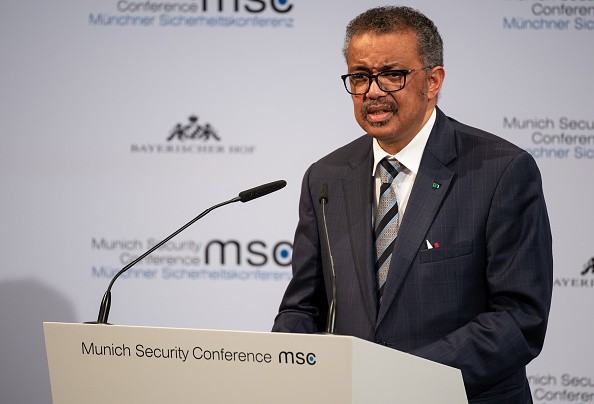The World Health Organization has warned that Afghanistan's health system is on the verge of collapse, with thousands of health institutions missing financing for medical personnel and materials.

Humanitarian Crisis in Afghanistan
In a recently published article in Newsweek, the humanitarian catastrophe is only one of the many difficulties the Taliban have faced since taking control of Afghanistan last month, including fresh threats from the terrorist Islamic State group, which has lately increased its assaults against Taliban members in their stronghold in the country's east.
Following a recent visit to Kabul by a WHO delegation headed by Director-General Tedros Adhanom Ghebreyesus, the organization issued a statement emphasizing the gravity of the situation. According to the WHO, the nation is on the verge of a humanitarian disaster; and institutions lack the necessary funds to function effectively, exacerbating the situation.
Many of these institutions have now decreased or shut down, requiring health professionals to face difficult choices about who to rescue and who to let die, according to WHO. Women must have access to education, health care, and the health workforce, according to the agency, according to a published article in Reuters.
Read Also : IMF Refuses to Release $450 Million to Afghanistan; Taliban Cannot Access Most Afghan Central Bank Assets
UN Aid Coordinator Releases $45 Million for Afghanistan
Martin Griffiths, the United Nations' assistance coordinator, released $45 million in life-saving help for Afghanistan from the global body's emergency budget on Wednesday as an emergency measure, according to a recently published article in NPR.
Allowing Afghanistan's healthcare delivery system to collapse, according to Griffiths, would be catastrophic. Primary health treatment, such as emergency caesarian sections and trauma care, will be denied to Afghans throughout the country, he said.
Taliban Request that Suhail Shaheen Be Allowed To Address in the UN General Assembly
Suhail Shaheen, a former peace negotiator and spokesperson for the Taliban political office, was previously announced as the Taliban's new UN representative in a letter to the UN. They asked for Shaheen's permission to speak at the United Nations General Assembly in New York, which is now in session.
In a published article in Hindustan Times, Afghanistan is scheduled to speak at the ministerial conference on Monday. If the Taliban does not get international recognition by then, Afghan Ambassador Ghulam Isaczai will deliver the speech.
Shaheen told a news outlet on Wednesday, "We have all the requirements needed for recognition of a government. So we hope the U.N . as a neutral world body recognize the current government of Afghanistan."
Furthermore, Isaczai is currently recognized as his country's United Nations ambassador; but the Taliban, who took control of most of Afghanistan last month as US and NATO forces were preparing to leave the country in a chaotic manner, argue that they are now in charge and have the authority to appoint ambassadors.
Taliban Appoint All-Male Cabinet Including the So-Called UN 'Blacklist'
The Taliban have chosen an all-male Cabinet made up mainly of hardliners from when they previously controlled Afghanistan in the late 1990s, including many individuals on the United Nations sanctions list after they stormed to power and Afghan President Ashraf Ghani left the country.
Amir Khan Mutaqqi, the Taliban foreign minister and the author of the letter to the United Nations asking Shaheen to attend the General Assembly, is among individuals on the so-called UN "black list."








